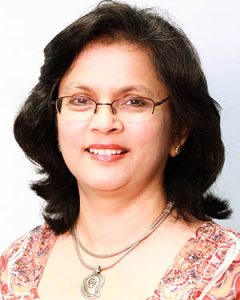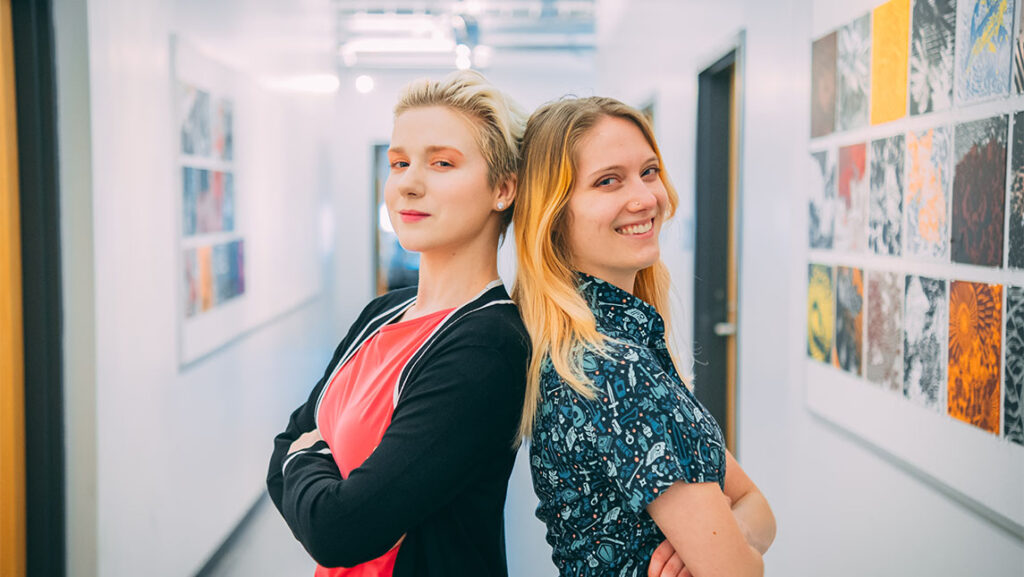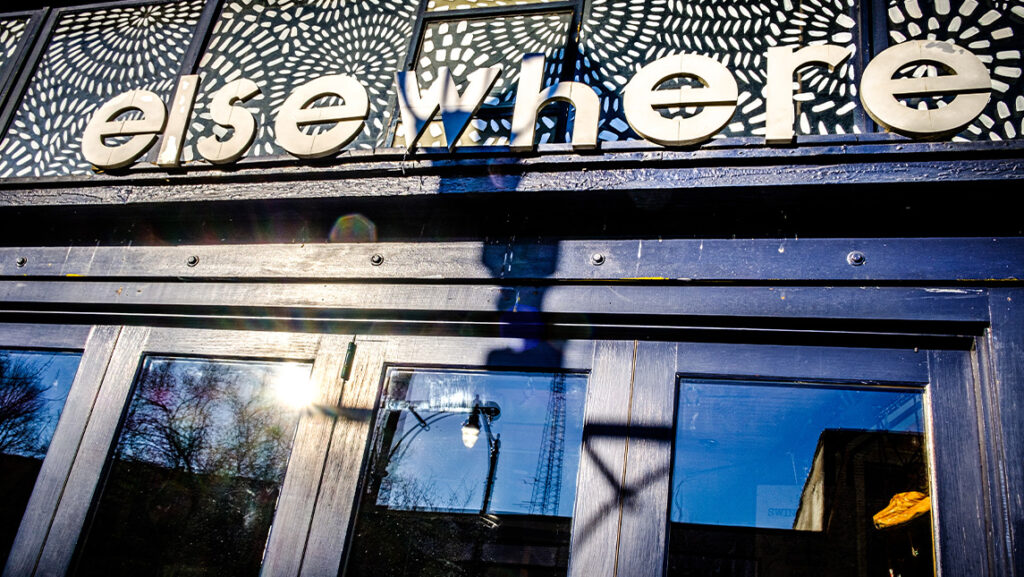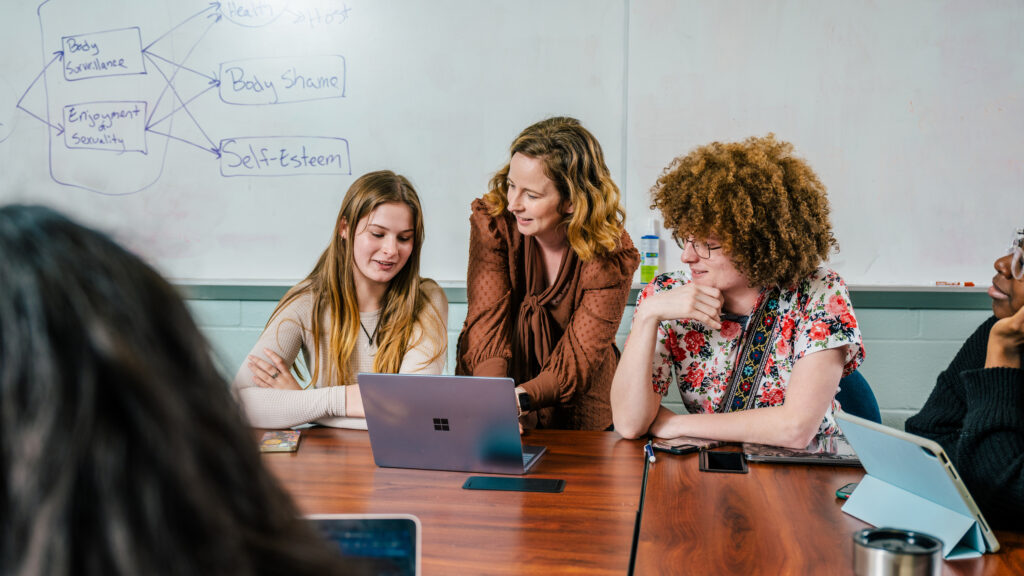Dr. Sudha Shreeniwas is the recipient of the 2021 Thomas Undergraduate Research Mentor Award for career (post-tenure).

For 10 years, Dr. Morrison and Dr. Shreeniwas have worked together to apply a transformational approach to their classroom teaching and mentoring economically and ethnically diverse UNCG undergraduates in research. Their practices align with the School of Health and Human Services (HHS) mission to “prepare new generations of professionals, leaders, scholars, and entrepreneurs [to] enhance the quality of life of individuals, families, and communities.” As teachers and communityengaged scholars, they focus on the health and empowerment of diverse marginalized refugee and immigrant communities, where key contexts include families, ethnic/racial diversity and socioeconomic inequality. Under their guidance student researchers gain exposure to research through their signature programs, “Enablers of HIV testing and prevention in Latinas (NIH funded)”, “The Montagnard Hypertension Project” (family and chronic disease in refugees), “The Montagnard Population Count Project; Refugee Older Adults Needs Assessment” and their individual projects, “ARTmail participation and health of older adults” (Shreeniwas; NEA funded), “Minority and Refugee/ Immigrant Community COVID-19 Response” (Morrison; BCDI funded.) They anchor these programs in principles of community-based participatory research (CBPR), emphasizing communities as co-researchers, and reciprocity by capacity-building for community empowerment. Dr. Morrison received the UNC Board of Governors Teaching Excellence Award in 2017, as well as the UNCG HHS Community Engagement Award in 2014, which Dr. Shreeniwas also received in 2017. Their CBPR and student engagement was recognized by the International Association for Research Service Learning and Community Engagement’s (IARSLCE) inaugural Community Outcomes and Impacts Award in 2019, enhancing UNCG’s Carnegie classification as a community engaged institution.
“I was fortunate to hear about the hypertension research project when Dr. Sudha and Dr. M. visited and spoke about the work at a Montagnard church. Some weeks later, I saw Dr. Sudha in the corridor of Stone Building at the University of North Carolina at Greensboro (UNCG) and asked about the project. She invited me to join the student research team. She and Dr. M. were training and sending out students to do community-based research. They organized trainings in biological and survey data collection, database management, data entry; and planned and did educational outreach for Montagnards. They found funding through their grants to financially support me as student researcher and coordinator. They really respected my experience as a leader among the next-generation Montagnard youth. This allowed me to use my language and cultural skills to effectively do behavioral survey data collection on hypertension with adults and at the same time coordinate and educate student research teams so they would be culturally sensitive and respectful when they entered Montagnard homes, neighborhoods and churches. One of the most important aspects of my work was to make connections with Montangard adults who had completed our survey and have them hear about the different findings from our work. I was able to talk to many of my elders about the importance of prevention but also about understanding why it is important to seek primary care even when they think they feel okay. Dr. M. and Dr. Sudha went the extra mile as professors because they worked with students from UNCG and other colleges in Greensboro, and Montagnard community interpreters and professionals to organize free flu shots and free blood pressure screenings for our church congregations. We worked together to plan health fairs at a school and a neighborhood park that involved local doctors and nurses; biology, nursing, health education and nutrition students from UNCG, NC Agriculture and Technical State University (NC A&T), and Guilford College; social service providers; college recruiters; local housing and immigration advocates. We had fun games and activities for children. We had our elders playing Montagnard musical instruments to educate the crown about our cultural traditions. We distributed fresh fruits and seeds for Montagnards to plant gardens. I also benefited from doing presentations about my research to classmates and at community events. I traveled to Canada and co-presented at the Society for Applied Anthropology on a panel organized by Dr. M., Dr. S. and our community advocate, Mr. Andrew Young. I spoke with confidence to an international audience about Montagnards, their culture, resiliency and health, and our partnership with university professors who care and do research about hypertension and other challenges in our community. I am proud also to be one of the authors on the first community-based research paper about our Montagnard Hypertension project.”
-H’Yua Liana Adrong


